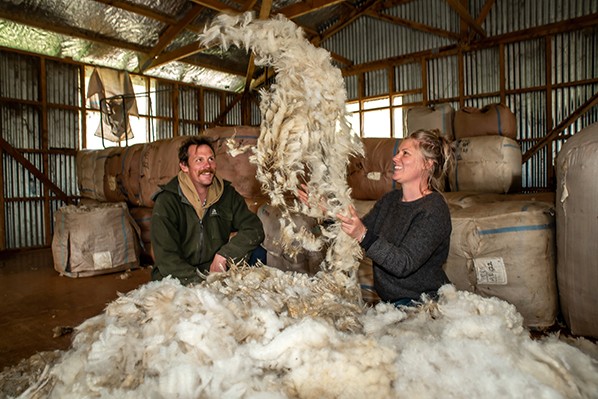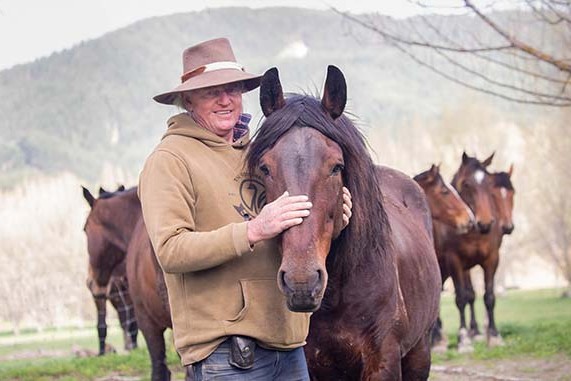Going by the numbers doesn’t tell the full story as Nicola Dennis explains.
I once attended a fiction writers group by accident. Having stumbled across an advertisement for local writers on Facebook, I thought “hey I’m a writer” and next thing I knew I was in a circle of people who were reading out draft chapters from their dystopian zombie novels. Eventually, I was called on to talk about my “work’ and I awkwardly mumbled through something about wool.
I learned a lot of things that night and one of them went something along the lines of “novelists tell the truth with lies and journalists tell lies with the truth”. I’m not actually a journalist (I find myself explaining this a lot), but touché. They are not exactly wrong.
In today’s hyper-politicised world, there are plenty of thinly veiled opinion pieces weaponised with cherry-picked facts. There are also plenty of numbers being abused by well-meaning writers who perhaps aren’t quite woke enough to understand that statistics have rights too.
Here is a small, eclectic list of examples.
Double trouble with little numbers
Just hours into the Labour day weekend, I heard the radio announcer say this Labour weekend’s road deaths were already double the total for the whole of last Labour weekend. Wowsers I thought, until I heard that last year’s road toll was one person. Okay, so two is technically double one, but not in the same way that, say, 14 would be double seven. Or, 2000 is double 1000.
We have encountered trouble with unspecified magnitude gains before. Who remembers the EAT Lancet report? The supporting evidence for that monstrosity was that eating a lot of meat each day increases your likelihood of dying of heart disease or cancer later in life by 40%. In other words, if you really hit the meat for long periods of time then a hazy longitudinal study suggests you may increase your annual risk of popping your clogs from 1% to 1.4%. That’s still a 40% increase, but suddenly nobody is too fussed.
So, next time the newsreader announces that “scientists” have found some innocuous food group doubles or triples your risk of something nasty you can join me in screaming “tell us the actual numbers” into the television set.
Is this more than normal?
If we turn our attention back to the road toll, there is something else going on here that needs to be considered. It’s sad to lose anyone to the road, but it happens all the time. There are generally 300-400 deaths and 12,000 to 14,000 injuries on New Zealand roads each year. Or, roughly, one death and 36 injuries per day. But, not all days are equal. On a long weekend, there are more cars on the road and more journalists listening in on the emergency services’ radio channels.
In the end, there were seven deaths across this Labour day holiday which is actually a pretty typical number for Labour weekend if we look over the records. Last year which was an oddity with only one death. One death is still bad, but it seems unfair to expect the three days of Labour weekend to outperform the average day on the road.
What question are we actually trying to answer when we tune in to hear about the road toll? I don’t know for sure, but I think we probably want a sense of how dangerous the roads are beyond our driveways. In that case, it might make more sense to report on the total number of crashes. The tally of injuries suggests that there are plenty of these taking place. After all the difference between a crash that causes an injury and a crash that causes death is mostly luck and engineering.
Although, there is a chance that we are simply tuning in for death, because death is fascinating. In that case, let me make up my own meaningless death statistic. Did you know that a motorcyclist has been killed each Labour weekend since detailed recording began six years ago? Maybe take your motorcycle out on a different weekend.
Proportion control
It’s a quirk of mathematics that you can’t explain a concept without giving an example that makes you seem unhinged. At university, one of my statistics lecturers used to bow over his overhead projector and describe scenarios in which teenagers would drive at the edge of cliffs to see if they could stop in time. He thought he was teaching us about probability, but what we were really learning was that this dude probably had people imprisoned in his basement.
Anyway, let’s assume I eat 1kg of cake. If I eat nothing else, then the cake is 100% of my diet for the day which reflects poorly on me. If I follow that cake with 4kg of vegetables then the cake is now 20% of my daily intake which sounds more reasonable.
However, I have still eaten 1kg of cake. The fact that I followed it up with an obscene amount of vegetables is not irrelevant, but it doesn’t change the fact that I have a problem with my cake consumption.
Likewise, when people say agriculture contributes 47.8% of NZ’s carbon emissions it hides the fact that NZ, like everywhere else, has a growing problem with burning fossil fuels for transport. NZ has a small population and happens to export enough meat and milk to feed 20-40 million people. This means our agricultural emissions dilute our transport emissions to 21.1%. It also means countries that import our meat and dairy products get a kind of free ride on some of their agricultural emissions within the global accounting system that preoccupies world leaders. We won’t get bent out of shape about that though because NZ has a similar advantage when it comes to the offshore emissions produced by our imported consumer goods.
Is it really appropriate to talk about emissions in percentage terms? I would argue it is not. Especially when you are trying to shrink the whole pie not reshuffle the pieces. If a physician decides my hypothetical cake snuffling self needs to lose some weight, they are not going to entertain the thought of chopping off my legs… even if they technically make up 30% of my weight.
When bamboozling numbers hide bad deals
While we were, briefly, on the topic of greenhouse gas emissions. Have you heard the one about the scientists that want to get rid of all the beef breeding cows to reduce NZ agricultural emissions by 5%? To be fair to the journalists covering this one, there is nothing more soul destroying than poring over a scientific paper on greenhouse gas modelling. I know some of these greenhouse gas coefficients by heart, but would still rather retrieve a NAIT tag from the offal hole than sit down to read about them.
But sit down I did and, guess what, there is nothing of value in this story. The research paper discovers, as any lay person at the pub could, that if you decide that almost all of the greenhouse gas emissions of a dairy cow should be attributed to her milk production and not her calf, then you can say that the dairy cow’s calf is “greener” than a calf from a beef cow that does not have the luxury of “hiding” her emissions in a vat of milk. Even though the dairy cow and her calf both consume more pasture (and therefore emit more methane) than a specialist beef-producing animal. It all comes down to whether you believe emissions should be measured on their own or if they should be measured per kilogram of food produced. The latter is fine as long as you also believe that the climate change rapture will also be delivered on a per kilogram basis.
I can’t fathom why researchers from the Netherlands are drawing battle lines between dairy and beef producers in NZ. But I can say that, even if the numbers stacked up, a 5% improvement in emissions would not be an adequate reward for the hell that would ensue if beef farmers were asked to part with their beloved Angus.
Correlation does not prove causation
I hasten to point this out because it seems to be so well known that my word processor automatically finished that subtitle for me. But, just because two things happen at the same time, does not mean that one caused the other.
Over the past 20 years the NZ sheep flock has decreased by 13.5 million breeding ewes to 16.85m woolly mamas. Meanwhile, the number of vehicles on NZ roads increased by 1.6m to 4.36m dinosaur burners.
So the number of breeding ewes halved while the number of cars doubled, could this be a coincidence? I bet I could come up with a semi-plausible theory about scores of ewes dying in roadside crashes. But, no, it’s just a coincidence. But I might put that one in the bank in case I break out into fiction writing with my new buddies.




